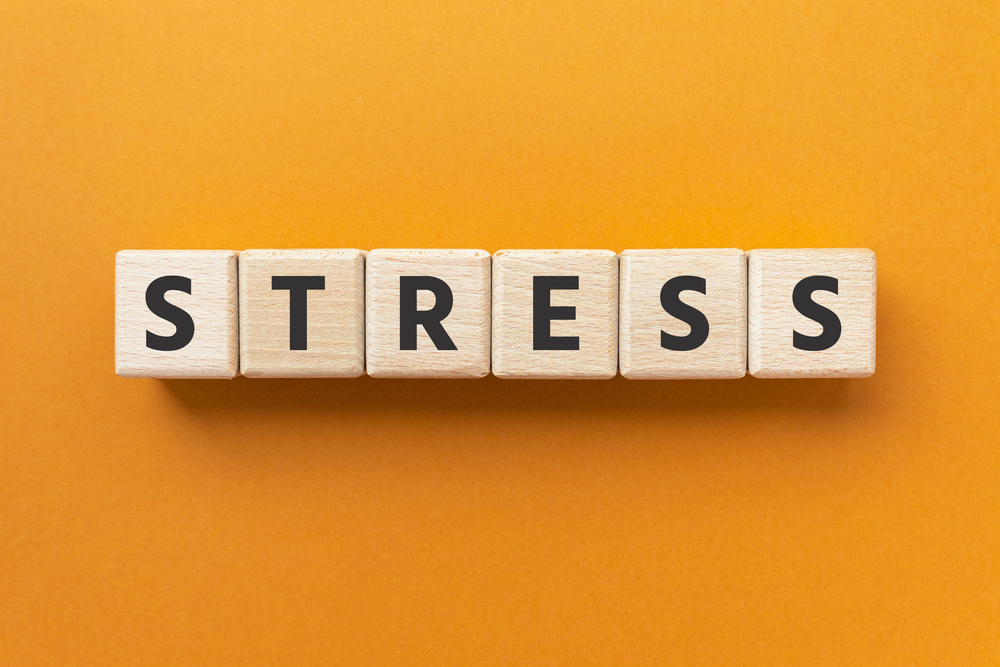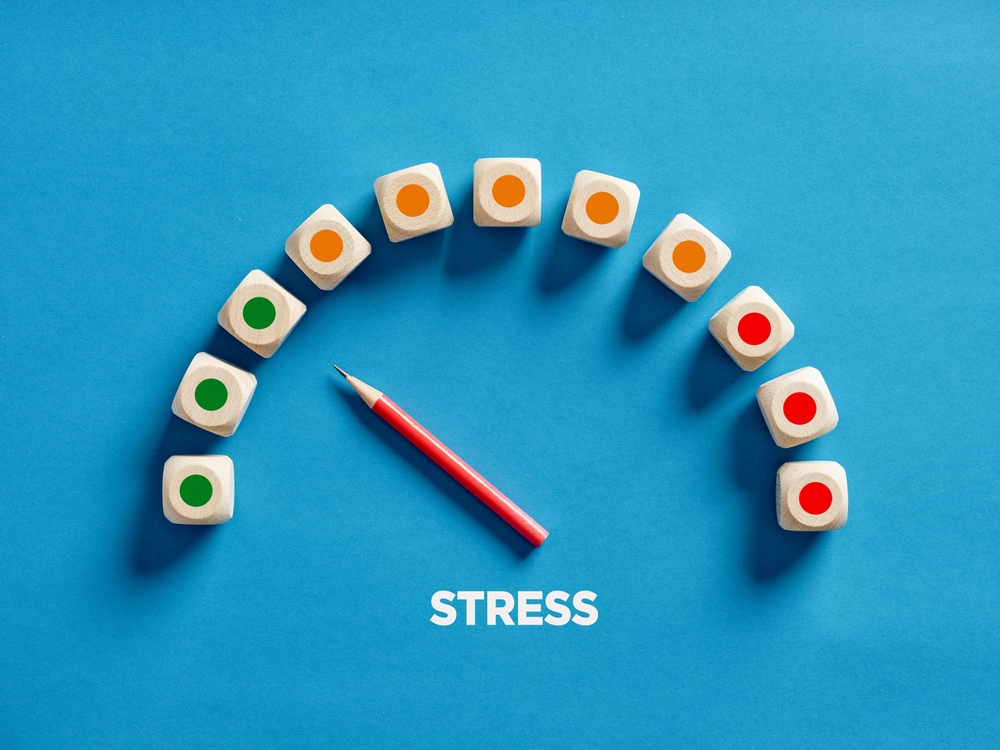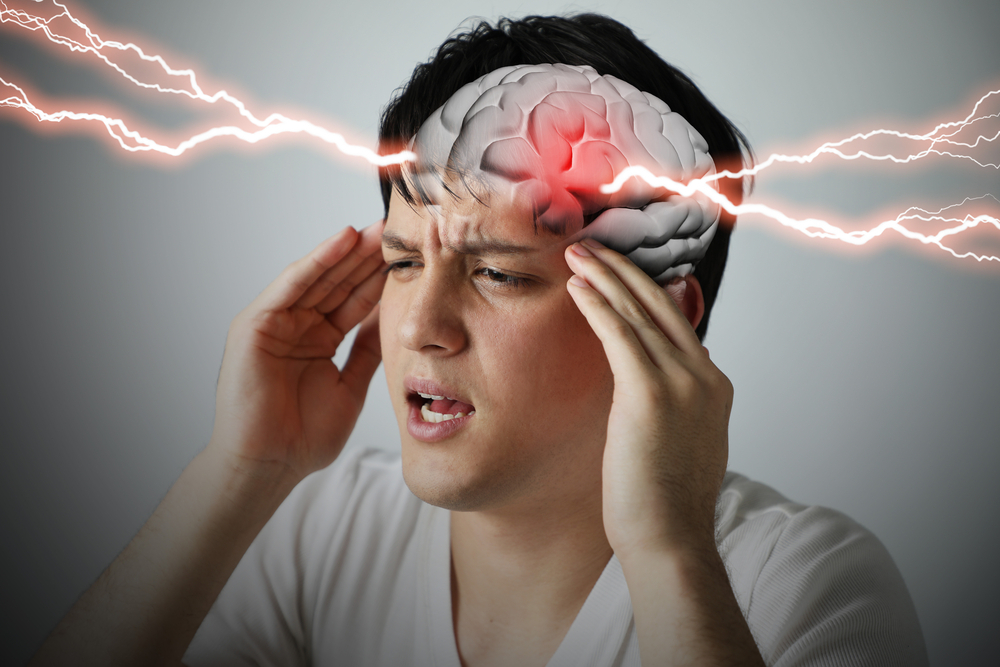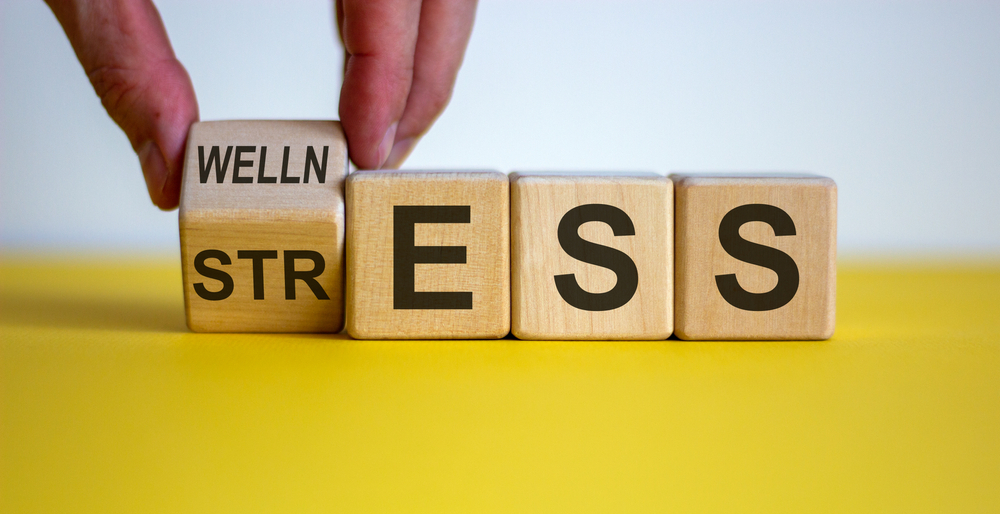Stress and Health: Understanding the Deep Connection

Table of con
In the ever-accelerating pace of modern life, stress has become as constant a companion as the air we breathe. Yet, few of us pause to unravel the intricate ties between our harried minds and the health of our bodies. ‘Stress and Health: Understanding the Deep Connection’ isn’t just a phrase for those feeling the weight of the world; it’s the gateway to redefining wellness in a society where silent pressures erode our vitality. In this article, we will embark on a journey through the enigmatic alleyways of physiology and psychology, uncovering how hidden stressors chip away at our health, and how understanding this symbiosis could be the missing piece to unlocking a life of robust well-being.
The Physiology of Stress

Stress isn’t just all in your head! It’s a physical reaction that ripples throughout your body, impacting everything from your heart rate to your muscle tension. Let’s dive into how this invisible force can have very visible effects on us, shaping our overall well-being in ways we might not even notice. We’ll explore what happens under the hood when stress revs the engine of our body’s biology.
Defining Stress: More than Just a Feeling
Stress often seems like just an emotion, a reaction to the chaos of our lives. But it’s much deeper—it’s your body’s way of responding to any kind of demand or threat. When you sense danger—whether it’s real or imagined—the body’s defenses kick into high gear in a rapid, automatic process known as the “fight-or-flight” reaction. This built-in stress response is your body’s way of protecting you.
The thing is, stress isn’t always bad. In small doses, it can help you rise to meet challenges. It keeps you sharp during a presentation, boosts your concentration when you need it most, or drives you to slam on the brakes to avoid an accident. However, when stressors are always present and you constantly feel under attack, that fight-or-flight reaction stays turned on. The long-term activation of the stress-response system can disrupt almost all your body’s processes. This is why it’s crucial to find healthy ways to cope with the stressors in your life.
Nitty-Gritty: How Stress Affects Your Body
When your brain senses danger, it springs into action. This “fight or flight” response pumps your body with hormones to get you ready to face the threat or run to safety. It’s like your body’s own superhero alarm system, all thanks to adrenaline and cortisol. But, when the alarm keeps ringing, like in today’s high-stress world, it can start causing problems.
Your body wasn’t made for constant red alerts. When stress doesn’t let up, it can lead to headaches, sleep troubles, and even stomach issues. Imagine your body as a high-powered car — it’s not designed to be in the red zone all the time. Constant stress can put a strain on your engine, aka your heart, and harm your health in the long run.
The Hormonal Cascade: Cortisol and Adrenaline
Imagine your body as a well-drilled team, where hormones are the messengers calling the shots during stressful times. Two key players in this scenario are cortisol and adrenaline, which are often termed the ‘stress hormones’. When you’re faced with a challenging situation, your brain sends out a distress signal. This sets off an alarm system in your body, and that’s where cortisol and adrenaline jump into action.
Adrenaline, the ‘fight or flight’ hormone, gets you ready for immediate action—your heartbeat quickens, muscles tighten, and energy is pumped to all the right places. Cortisol, on the other hand, takes a bit longer to respond, but it’s meant for the long haul. It keeps your energy levels up and tempers your body’s functions so you can handle the stress without burning out too quickly. But if your alarm button is stuck, and these hormones are always on, your health can take a serious hit. It’s like keeping your car in a high gear—you’ll eventually wear out the engine.
Chronic Stress and Its Role in Disease
Chronic stress isn’t just feeling overwhelmed; it’s a health hazard. When stress sticks around for the long haul, it invites a host of issues. Your body is on high alert all the time, and this can seriously wear you down. Think of it as running your car engine non-stop; eventually, something’s got to give.
This enduring stress has a direct link to a whole bunch of health problems. Heart disease, diabetes, digestive troubles, and even sleep disturbances often trace back to chronic stress. Your immune system also gets hit hard by the ongoing stress, making you more likely to catch colds or other infections. Keeping stress in check isn’t just about feeling good; it’s about keeping your body running smoothly.
Risk and Resilience: Personal Differences

Ever wondered why some people breeze through pressure-packed situations while others crumble at the slightest hint of stress? It’s not just about willpower; the puzzle of why we react so differently to stress is rooted in our unique personal differences. This section delves into the factors like genetic makeup, personality traits, and past life experiences that play key roles in shaping our individual resiliency or vulnerability in the face of life’s stressors. Understanding these personal nuances can help us navigate our own wellness journeys more effectively.
Genetic Predisposition to Stress-Related Illness
Some of us seem to sail smoothly through turbulent times while others can be profoundly affected by the smallest wave. The key might be tucked away in our DNA. Genetics play a significant role in determining how susceptible we are to stress and its associated health issues. Just as hair color and eye color are passed down, so is our body’s stress response system.
Individuals with certain genetic variations may be more prone to stress-related illnesses. Think of it as a family heirloom you never asked for. For example, variations in the FKBP5 gene can affect how an individual regulates and recovers from stress. This scrutiny of our biological blueprints gives us valuable insight into why some people are more likely to experience conditions like heart disease, diabetes, or depression when faced with continuous stress. Recognizing this connection is a giant leap towards personalized healthcare and prevention strategies that cater to each person’s unique genetic makeup.
Personality Traits and Stress Perception
Have you ever noticed that some people stay cool under pressure, while others seem to unravel at the smallest hiccup in their day? It’s not just luck—our unique personality traits play a huge role in how we perceive and handle stress. Scientists have found that certain characteristics, like optimism or a laid-back attitude, can shield us from feeling overwhelmed by stressors. On the flip side, if you often worry or strive for perfection, you might be more sensitive to life’s pressures.
Knowing this can really change the game. By understanding your own personality, you can tailor your stress management strategies to be more effective. For example, if you’re a natural worrier, learning relaxation techniques might be a game-changer for you. Remember, self-awareness is your ally. With it, you can turn the tables on stress and keep your health in check.
The Impact of Past Trauma and Resilience
Stepping back into the past isn’t always about nostalgia; sometimes it’s about recognizing that old wounds often leave invisible scars. Past trauma can linger in the recesses of our minds, influencing how we perceive and cope with present-day stress. It’s like carrying a heavy backpack that you can’t take off – it affects how you walk, run, and stand.
On the flip side, the strength we gain from overcoming hardships is called resilience. Like a muscle that gets stronger with exercise, resilience grows when we face and conquer challenges. Those who have developed resilience may be better equipped to handle stress and bounce back from tough situations. After all, as Ernest Hemingway famously said, “The world breaks everyone, and afterward, some are strong at the broken places.”
Stress Indicators: Learning to Listen to Your Body

Your body speaks volumes, even when you’re not aware of it, especially when it comes to the pressures you face day-to-day. Don’t ignore the signals – those headaches, that constant fatigue, or the sleepless nights could be your body’s way of waving a red flag. By tuning into the subtle (and sometimes not-so-subtle) cues, you can unveil the truth about what your physical self is enduring. Let’s dive into how to spot those red alerts and interpret the language of your physiology – a critical step for safeguarding your overall well-being.
The Language of Symptoms: What to Watch For
When your body speaks, it’s wise to listen. Symptoms are like the body’s language, signaling that something is awry. Headaches, insomnia, and stomach issues might ring familiar as distress flares, urging you to slow down and take notice. Yet, these are just the tip of the iceberg. Muscle tension, fatigue, and even frequent colds can be your body whispering for help.
Look out for changes that don’t fit your normal pattern. If you’re suddenly snapping at friends over small things or finding it hard to concentrate, these could be cues that stress is taking a toll. Recognizing these early markers is essential to managing stress before it escalates. Remember, these signals are not the enemy but signposts guiding you towards taking better care of yourself.
Early Markers of Stress Overload
When our lives are jam-packed with deadlines and demands, our bodies wave red flags that we might not always see. Think of your body like a car dashboard, with warning lights flickering on to catch your attention before a breakdown.
Persistent tiredness, despite getting enough sleep, is one such signal. You might feel worn out all the time, as if you’re dragging through your days rather than striding. Another heads-up comes from your mood; if you’re feeling more irritable than a cat on a hot tin roof, or you’re as anxious as a long-tailed cat in a room full of rocking chairs, stress could be gnawing at you.
Physical symptoms can sneak up, too. Unexpected aches and pains, particularly in your neck and back, or frequent headaches can all be stress’ calling cards. Notice if your stomach’s often in knots, or if each meal feels like a bout of ‘digestive roulette’ with how it sits. If getting through the day feels like you’re scaling a mountain and every task is akin to juggling flaming torches, these can be early markers that stress is starting to overload your system.
The Mind-Body Dialogue: Understanding Signals
Imagine your body like a smart phone sending you notifications. These “alerts” can be anything from a headache to feeling extra tired. It’s your body’s way of saying, “Hey, something’s up!” Just like you wouldn’t ignore a friend’s message, it’s important to pay attention to what your body is trying to tell you.
Sometimes, stress sneaks up on us. Our heart might race before a test or our stomach could twist into knots at the thought of a big presentation. These are signals that we’re feeling stressed. The better we get at understanding these signs, the quicker we can take steps to chill out and keep the stress from becoming a bigger problem.
The Mental Sequelae of Stress

In the complex web of our well-being, the influence of persistent worry and tension on our mental state is profound, yet often underestimated. This invisible battle can cast long shadows over our psychological landscape, manifesting as anxiety, depression, and various cognitive disturbances. It’s important to recognize how these mental changes not only affect our day-to-day life but also how they contribute to a cycle that may further exacerbate stress. Let’s delve into this aspect, unraveling the mental aftermath of chronic stress and understanding its far-reaching impacts.
Anxiety and Depression: The Psychological Twins of Chronic Stress
When it feels like the weight of the world is on your shoulders, your mental health can take a serious hit. Many don’t realize that anxiety and depression are closely linked to ongoing stress. Think of them as the left and right hands of a troublesome pair, working together to throw your mind off balance.
Anxiety is like a constant buzzing in your brain, always alerting you to possible danger. It can make your heart race and mind whirl, even when there’s no real threat. On the flip side, depression often creeps in, whispering that nothing matters and sapping the joy out of life. These two can trap you in a cycle that’s hard to break free from.
If you’re fighting these battles, you’re not alone. And the good news is, by understanding how they connect to stress, you can start to find your way back to a more peaceful mind.
Cognitive Impacts: Memory, Focus, and Decision-Making
When your mind is racing and your heart is pounding from the pressures around you, it’s not just your nerves that are getting tangled. Your brain’s ability to remember, keep attention, and make clear decisions can take a serious hit. You might notice that during stressful times, your memory becomes as slippery as a bar of soap, and focusing on the task at hand is as hard as trying to catch a fly with chopsticks.
Stress loves to play with your brain’s intricate wiring, especially in areas like the hippocampus, which is vital for forming memories, and the prefrontal cortex, which is the CEO of decision-making. If this feels familiar, you’re experiencing the mental sequelae of stress, a fancy term for the aftermath of a stress storm in your brain. It’s important to realize that these cognitive changes are common and reversible. Finding ways to manage your stress can help clear the mental fog, sharpening your memory and decision-making skills once again.
The Vicious Cycle: Stress and Mental Health
When we’re caught in a relentless storm of worries and obligations, it’s not just our schedules that get jam-packed. Our minds take a hit too, and this can stir up a real hornet’s nest: anxiety and depression. These mental health challenges are like the unwelcome house guests of our psyche, often arriving hand-in-hand with chronic stress.
What’s tricky is that this isn’t a one-way street. Feeling anxious or down can turn up the dial on stress, creating a looping cycle that’s tough to escape. Our ability to remember things, stay focused, and make smart choices can also suffer. It’s as though stress muddles our mental gears, and this can lead to more stress because we feel less in control. Recognizing this loop is the first step to breaking free from it.
Lifestyle Interventions to Alleviate Stress

In the hustle of everyday life, taking a step back to focus on stress reduction might just be the key to a healthier you. It’s not all about medication or doctor’s visits—there’s a treasure trove of simple, daily habits that can significantly dial down the stress volume in your life. Let’s explore some of these game-changers and how they can become your personal stress-busters.
Dietary Adjustments for Stress Management
What you put on your plate plays a massive role in how you handle life’s pressures. Eating the right foods can be like equipping your body with a shield against stress. Imagine your daily diet could help calm your nervous system, balance your hormones, and soothe your mind. That’s not wishful thinking; it’s the power of nutrition in managing tension.
Start by incorporating more vitamin C-rich foods, like oranges and strawberries, which can help curb cortisol levels. Pile on leafy greens loaded with magnesium, a natural relaxant. Lean proteins can steady your blood sugar, keeping mood swings in check. Also, complex carbohydrates from whole grains release serotonin, a neurotransmitter that brings a sense of calm. And don’t forget the mighty omega-3 fatty acids found in fish like salmon—they’re brain food that may reduce the symptoms of stress.
Remember, what you drink matters too. Sipping on green tea is not just comforting; its amino acid, L-theanine, promotes relaxation. And staying hydrated with plenty of water is non-negotiable — dehydration can actually mimic feelings of anxiety.
While no single food is a magic bullet, the collective effect of a healthful diet sets the stage for a more resilient you. Making small, wise diet choices can unfold into significant stress-relieving results.
The Role of Physical Activity in Countering Stress
When life piles on the pressure, moving your body can be a mighty shield against the tidal waves of tension. Exercise isn’t just about getting strong or shedding pounds; it’s a profound tool for clearing the mental fog that stress tends to bring. With every drop of sweat, our bodies release a crew of natural mood boosters called endorphins. These little guys are like your personal cheerleaders, amping up your spirits and bringing a sense of calm.
But the perks don’t stop there. Regular physical activity reshapes our stress response, making us less reactive to life’s little – and big – annoyances. Think of it as upgrading your internal software so you can handle more tasks without crashing. The beauty is you don’t have to be a marathon runner or a gym fanatic to reap these benefits. To dodge the sneaky claws of stress:
- Take a brisk walk and let the rhythm of your steps soothe your mind.
- Hop on a bike and pedal away the day’s worries.
- Dive into a pool and let the water’s embrace wash away tension.
- Sweep into a dance class and swing stress out of your system.
- Join a sports team and let the camaraderie fortify your resilience.
No matter how you choose to get moving, dedicating time to engage your muscles is just as critical for your mental health as it is for your physique. So lace up those sneakers and declare war on stress – your body and mind will thank you for it.
Mindfulness and Relaxation Techniques
Slowing down in a world that never stops might sound like a fantasy, but it’s entirely possible with mindfulness and relaxation techniques. Taking the time to practice these methods can be like hitting the pause button on life’s craziness. Mindfulness is all about tuning into the present moment. It means being fully aware of what you’re doing, and not overreacting or becoming overwhelmed by what’s going on around you.
Relaxation techniques, on the other hand, are like a deep breath for your mind and body. Activities like deep breathing, yoga, or meditation help chill you out by lowering the alarms that stress sets off in your body. And when you make them a regular thing, they can help you manage anxiety, sleep better, and even lower your blood pressure. Picture it like training for your brain – the more you practice, the better you get at keeping stress at bay.
The Importance of Sleep in Stress Management
Sleep is like a secret sauce for maintaining your well-being in today’s fast-paced world. It’s during those quiet hours of the night that our bodies repair the wear and tear of the day. And when it comes to handling life’s pressures, sleep can either be your greatest ally or your worst enemy. Not getting enough zzz’s makes it harder for your brain to cope with stress. In contrast, a good night’s sleep can boost your mood, making you more resilient against daily hassles.
What may surprise you is that sleep and stress are like two peas in a pod; they influence each other in big ways. When stress is high, sleep often suffers. Yet, without sufficient rest, your body produces more stress hormones. Creating a cycle of restfulness can break the stress spiral. Here’s a quick look at how quality sleep chips away at stress:
- Helps balance the stress hormones, cortisol and adrenaline
- Allows your brain to process emotional information from the day, leading to better mood regulation
- Recharges your body for the next day, so you’re ready to handle challenges
By treating sleep as non-negotiable, you’re setting up a defense line against the pressures life throws your way. Remember, when you’re well-rested, you’re stronger, mentally and physically, to take on whatever comes next.
Future Outlook: Stress Resilience as Healthcare Focus

The conversation around healthcare is shifting gears, zooming into how we can bounce back from stress with more ease. It’s about drawing the blueprint for the kind of healthcare that doesn’t just fix us when we’re broken but strengthens us to withstand life’s pressures. Imagine a world where your doctor hands you a toolkit to dodge stress like a wellness ninja. That’s the future we’re looking at: where stress resilience sits front and center in our collective quest for a healthier tomorrow.
Innovative Therapies and Tools for Coping
In the realm of mental health, the winds of innovation are always blowing, bringing with them a slew of intriguing therapies and gadgets designed to help us manage the pressures of life. These novel approaches take aim at the blight of chronic strain with the precision of a modern-day archer. Consider biofeedback, a technique that teaches control over certain bodily functions that stress can disrupt. By using sensors attached to the body, individuals can watch real-time metrics like heart rate and muscle tension, learning to rein in the wild horses of their physiology.
Another cutting-edge strategy is virtual reality (VR) therapy. It whisks people away to serene landscapes or guides them through calming exercises, all within the safety of a headset. This immersive experience doesn’t just distract from stress; it’s being used by therapists to plunge individuals into scenarios that provoke anxiety, helping them to confront and quell their fears in a controlled environment. The digital age has also spawned apps galore, each one promising to shepherd us back to tranquility. Whether through guided meditations, sleep stories, or cognitive-behavioral therapy (CBT) exercises, these pocket-sized peacekeepers are making stress management more accessible than ever.
Shifting from Treatment to Prevention
In the world of health care, a powerful transformation is brewing. It’s a shift from merely treating symptoms to actively preventing them. Preventive health care isn’t just about vaccines or annual physicals; it’s about changing the way we live to stop problems before they start. This means looking at the whole picture—our diets, our exercise habits, even our relaxation and sleep routines.
Health experts are starting to focus more on building stress resilience. This isn’t just about avoiding stress, since that’s nearly impossible in our busy lives. Instead, it’s about teaching our bodies and minds how to handle stress more effectively. Imagine schools that teach mindfulness, workplaces that encourage regular breaks, and communities designed for easy access to green space. That’s a future where prevention is key, helping us stay healthier and happier in the long run.
Closing the Gap: Holistic Approaches to Health and Well-being
Bridging the divide between mind, body, and spirit lies at the heart of holistic health practices. It’s about seeing the person as a whole, recognizing that our mental state, physical condition, and emotional well-being are deeply intertwined. These practices aim to heal not just the symptoms but the underlying causes of stress.
Traditional medicine often zooms in on the ‘what’ and ‘where’ of our health issues—like quelling a headache or bringing down a fever. But holistic approaches ask ‘why’ and ‘how’—they seek to understand the root of the discomfort and how to bring lasting balance. This means looking closer at our daily habits, thoughts, and environments to make positive, lasting changes. It’s a journey that might include:
- **\*Nourishing diets:** Understanding how food fuels not just our bodies but also our moods.
- **\*Regular exercise:** Finding joy in movement that strengthens our resilience against stress.
- **\*Mindfulness practices:** Harnessing the power of the present moment to calm turbulent thoughts.
- **\*Quality sleep:** Prioritizing rest to rejuvenate and repair our weary systems.
It’s in this integrated approach that wellness finds its true north, guiding us to a place where our lifestyle is the medicine and prevention is the best treatment.
Conclusion
As the echo of our journey into the labyrinth of stress and its profound impact on health fades, we walk away equipped with newfound knowledge and perspectives. Stress need not be an unchallengeable foe â its tendrils are not inescapable shackles. Understanding the intricate dance of stress hormones, listening closely to the whisperings of our bodies, celebrating the dynamic cognition we host, and embracing the therapeutic power of lifestyle changes, plants the seeds of health sovereignty. As civilizations emerge to prioritize holistic well-being and engage in preventative strategies, embracing stress as a powerful informant ensures that we no longer merely survive, but thrive, within the embrace of modern existence.








Thank you for your sharing. I am worried that I lack creative ideas. It is your article that makes me full of hope. Thank you. But, I have a question, can you help me?